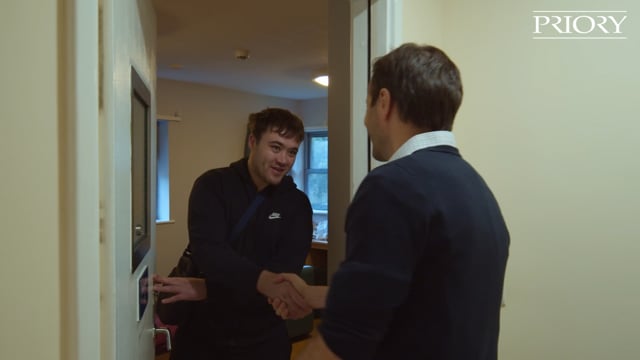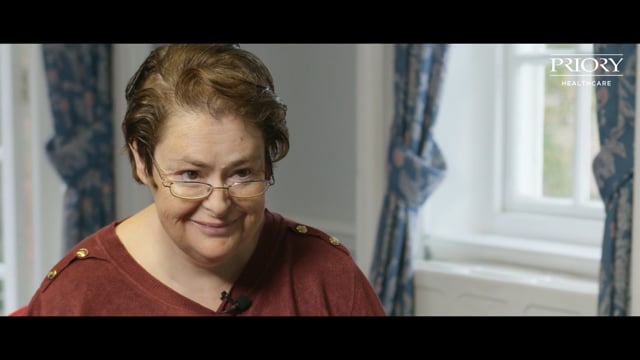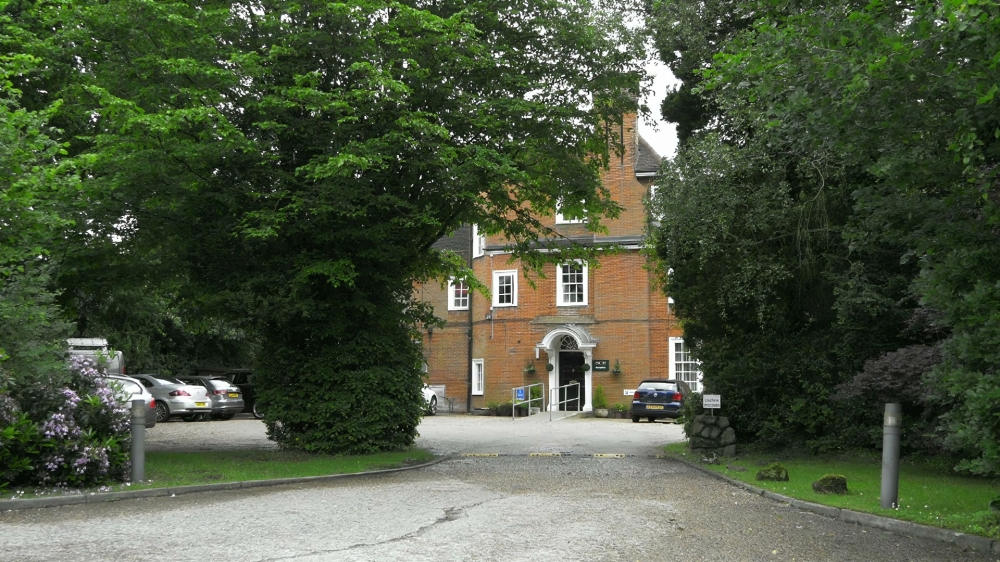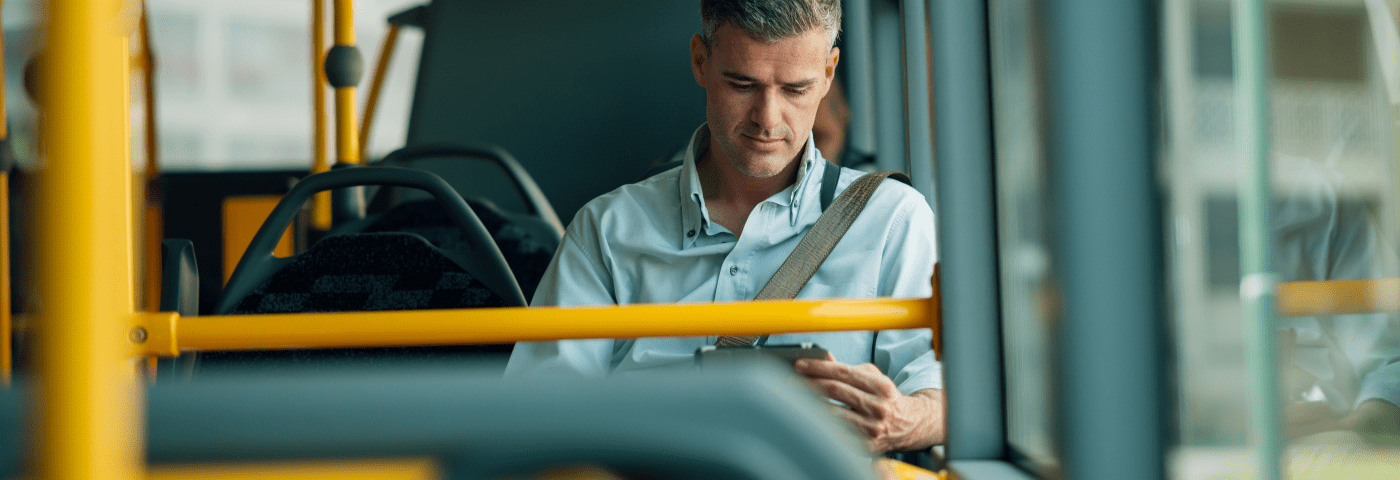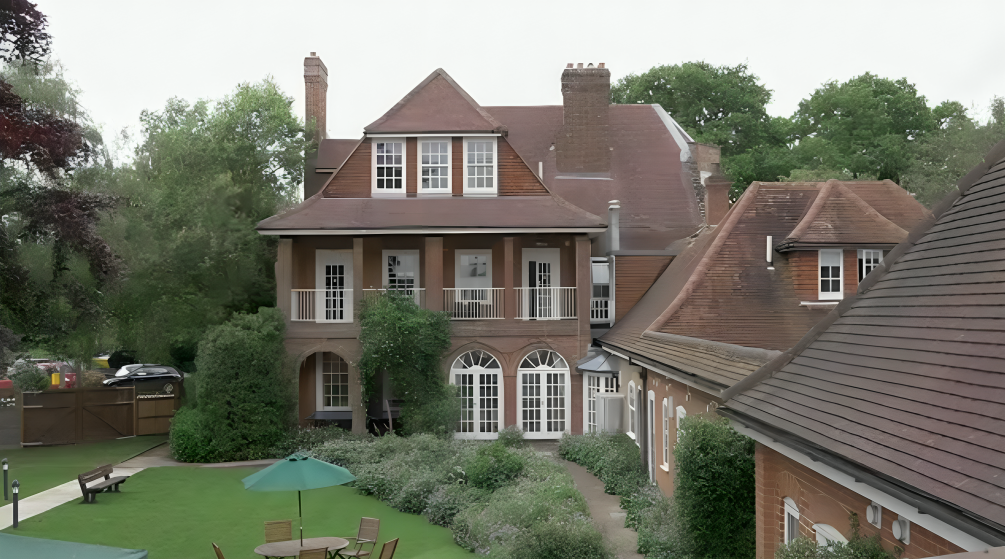About this location
Located within picturesque grounds, Priory Hospital Hemel Hempstead supports the NHS by offering level 2 rehabilitation services for male and female patients with severe and enduring mental health needs.
We also provide specialist Huntington's disease and dementia care for people living with these neurodegenerative conditions, as well as neuropsychiatry support.
Services at a glance
Contact us
Click here to enable this content
Services
Our comprehensive rehabilitation services provide support for people with complex mental health needs. We align our services with the recommendations of the Joint Commissioning Panel for Mental Health (JCPMH), ensuring our patients are given the highest quality care to enable an appropriate transition back home or into community services, wherever possible.
Ward break down
- Dove - 15-bedded ward for adult/older age males (level 2 active rehabilitation unit, which includes Dovecote step-down ward)
- Robin – 12-bedded ward for adult/older age females (level 2, active rehabilitation unit)
Conditions treated
We are able to support people with the following challenges:
- Severe and enduring mental health needs
- Depression
- Anxiety
- Bipolar disorder
- Psychosis
- Neuropsychiatry
- Dementia
- Paranoid schizophrenia
- Cognitive impairment
We can also provide support for Huntington’s disease, which is bespoke to the needs of each individual.
In addition, we can support people who present with the following challenges alongside their primary diagnosis:
- Substance misuse
- Sexual offending
- Physical disabilities
We are able to support informal patients or those detained under the Mental Health Act.
Treatment approaches
At Hemel Hempstead, we offer an individualised, person-centred approach to all of our patients.
Our aim is to work collaboratively with the people who stay with us to provide the best quality of care, improve the quality of their lives and help them achieve the highest level of independence and dignity. We formulate care and treatment plans with patients, working to identify and address their needs as individuals.
Our assessment and treatment options are overseen by a full and diverse multidisciplinary team (MDT).
We offer:
- Positive behaviour support (PBS)
- Occupational therapy (OT)
- Physiotherapy and physical health support, on a case-by-case basis
- Activities involving music and art, but not as a structured therapy
- Mindfulness
People within our R&R service tend to stay with us on a medium to long-term basis.
Our team
Our team consists of:
- Hospital director
- Director of clinical services
- GP
- Ward managers
- Registered mental health nurses
- Healthcare assistants
- Senior healthcare assistants
- Occupational therapist (OT)
- OT assistants
- Consultant psychologist
- Psychology assistant
- Physical health nurse
- Consultant psychiatrists
- Specialist doctor
- Adult speech and language therapist (SaLT)
- Dietitian
- Physiotherapist
- Complementary therapist
- Chiropodist
- Catering team, including 2 qualified chefs
- Full time driver
We also provide specialist staff training, including:
- Physical manual handling
- Phlebotomy
- Safeguarding
Therapeutic and community-based activities
We offer a range of therapeutic and community-based activities as part of a full treatment programme. We want to support people to become more confident and independent, preparing them to move through their treatment pathway towards community living.
Our therapeutic and community-based activities include:
- Patient-centred activities, dependent on needs
- Education, vocational recreation and involvement with local support groups
- OT-led integration programmes, encouraging community engagement
- Outdoor activities on-site, including BBQs in the summer, and other seasonal events
- Trips out to local amenities
- Regular access to the community
- Gardening
- Football/table tennis
- Movies
- Games
Our facilities and environment
Our bedrooms
All of our bedrooms are single-occupancy and have an en-suite with a shower. Patients are encouraged to personalise their bedrooms while they are staying with us. We provide:
Exclusion profile
- People under the age of 18
- People with a primary diagnosis of personality disorder, autism or learning disability
Pathways
Priory’s network of high-quality facilities enables us to offer joined-up care pathways with our dedicated residential services. We offer programmes which integrate healthcare treatment and therapy, which are tailored according to individual needs, in an appropriate setting. Our strength is that we can provide a seamless transition for the individual as they progress between higher and lower dependency services.
People staying with us are treated as individuals within their own therapeutic pathway and support can be tailored to meet their needs. We offer a step down pathway for males to Dovecote, where they can gain skills for independence prior to discharge. Our Priory Adult Care site at Yew Tree Lodge in Reading is also available for patients to step down to, if appropriate. We also have good links with Priory Adult Care in the South of England, for supporting placements where needed.
We provide a step-down service to people who no longer require admission to acute wards or psychiatric intensive care units (PICUs), but are unable to be discharged into the community for a variety of reasons. This might include:
- Lack of access to suitable discharge placement
- Further assessment being required before discharge placement is identified
- A small amount of additional intervention is required but a long-term rehabilitation admission is not required
- The patient is waiting for a specialist rehabilitation admission
- The patient is waiting for allocation of additional professionals
This service is delivered within our R&R wards and aims to provide inpatient care closer to home, within a therapeutic and enabling environment, whilst freeing up acute beds for those who need them most.
Conditions treated
We are able to support people with:
- Severe and enduring mental health needs
- Schizophrenia
- Schizoaffective disorder
- Bipolar disorder
- Psychosis
- Depression
- Anxiety
- Personality disorders
- Neurodevelopmental disorders, including autism, attention deficit hyperactivity disorder (ADHD) and a mild learning disability
Treatment approaches
Priory Hospital Hemel Hempstead offers an individualised, person-centred approach to all of our patients. In collaboration with patients and families, our ultimate aim is to support people to better understand their needs and goals, and to develop confidence and independence, in managing their health and wellbeing.
The purpose of an admission to our community reablement service is to support people to resolve the barriers to discharge within the least restrictive setting.
The ethos of the hospital is one of positive risk taking and an acceptance that ‘practice makes perfect’. This allows people to try out their new skills in a non-judgemental environment and learn to adapt when things don’t go according to plan.
We maintain close links with families, community teams and commissioners, involving them in the recovery journeys of those that we care for.
Our therapy programme uses a range of evidence-based assessments and interventions in both one-to-one and group settings. We evaluate our programme every eight weeks to ensure we are responding to the changing needs of the people we care. Lack of motivation and insight are specifically identified as a focus for therapy rather than a barrier to it.
Our community reablement patients have access to our full therapy programme if required, however length of stay is considerably shorter as their stay is focussed on resolving barriers to admission rather than because patients need intensive intervention.
We are able to offer additional assessments to those on the community reablement programme, to support onward care planning. This can include:
- ASD assessment (ADOS-2 and ADI-R)
- ADHD assessment (CAARS & DIVA 5)
- Cognitive assessment (WAIS-IV)
- Test of premorbid functioning (TOPF)
- The Minnesota Multiphasic Personality Inventory (MMPI) • Trauma assessment (TSI-2)
- Sensory profile
Outcome measures
We use a variety of outcome measures, which give us a balance of patient and clinician views. These tools are repeated at regular intervals to demonstrate progress that has been made.
Our team
We have a full SMT, MDT, and support services team, which consist of:
- Hospital director
- Director of clinical services
- Head of facilities
- Medical director
- Ward managers / deputy
- Senior / staff nurses
- Healthcare assistants
- Consultant psychiatrists
- Junior doctor
- Consultant clinical psychologist
- Assistant psychologist and trainee psychologists
- Occupational therapist
- Occupational therapy assistants
- Fitness instructor
- General advocacy and independent mental health advocate (IMHA) services
- Local GP services
- Access to a dietician
- Catering team
- Housekeeping team
- Maintenance team
- Administrators
We also provide specialist staff training, including:
- PBS training
- The National Autistic Society training
- Bi-weekly local educational sessions
- Weekly complex case discussions
- Monthly reflective practice sessions
- Monthly clinical supervision
Our facilities and environment
We believe that the environment in which treatment takes place is just as important as the treatment itself, when it comes to supporting our patients. Our large grounds provide a safe, empowering and validating space for people to recover from their mental health difficulties. On the wards, we provide:
Our bedrooms
All of our bedrooms are single occupancy and have en-suite bathrooms. Patients are encouraged to personalise their bedrooms while they are staying with us and they are able to use TVs and games consoles in their rooms if they wish. We provide:
Exclusion profile
• People under the age of 18
• People with a primary diagnosis of a learning disability
• People with a primary diagnosis of substance misuse
Pathways
Priory’s network of high quality facilities enables us to offer joined-up care pathways with our dedicated residential and supported living services in Priory Adult Care. We offer programmes which integrate healthcare treatment and therapy, which are tailored according to individual needs, in an appropriate setting.
Our strength is that we can provide a seamless transition for the individual as they progress between higher and lower dependency services.
A message from our site leader

I have nursed for over 30 years and worked with many teams in that time. I can honestly state that throughout my experience, I have never worked with a more caring, compassionate and dedicated team. Everything that our colleagues do and every minute that they do it, is dedicated to ensuring that the patients’ therapeutic journey is meaningful, achieves its outcomes and makes a positive and lasting difference to their holistic wellbeing
Hemel Hempstead site leader
Comments from our patients and their family and friends
The job you do is an honourable one and you should be very proud of yourselves for the life changing results of the care and compassion you give to help people when they are most fragile and feeble. Without this service, I would not now be on the path to getting my life back and this is because you have cared for me and nurtured me back to better health
Information for family and friends
How do home visits work?
We encourage people staying with us to visit families and friends. We have a car and a wheelchair minibus along with a full time driver and also care staff who can drive our vehicles. Requests for home visits will be ratified by the patient’s consultant and planned in advance. Any special instructions from the family or the person staying with us will be considered when planning for the visit.
What is your visitation policy?
We do not have fixed visiting times. However, we do request all visits to be pre-arranged with the ward to ensure that we have available rooms and staff to facilitate.
Will I be involved and kept up to date with my loved one’s care and wellbeing?
We actively encourage relatives to be involved in their loved one’s journey during their stay with us. We do, of course, consider the patient’s wishes in this. Usually, relatives will be invited to regular formal meetings, such as review meetings. Relatives can meet the teams involved in the care of their loved one, as well as communicate with our colleagues either in person, via phone, video or email. Families may be asked for their involvement in care planning and other decisions in the best interests of their loved one. As each person in our care is an individual, so too are their needs and this is reflected in the type and level of family involvement.
Will my loved one be able to have a phone or call me?
We do not have a blanket restriction which prevents people staying with us from having phones. However, we do risk assess this and on occasions, we do need to introduce guidelines as to how the phone can be safely used. For those without phones, each ward has two incoming phone lines and a cordless phone which they can use in private at any time.
What type of things are families expected to provide, and what is provided by the home?
The hospital will provide all furniture for the bedrooms, including a television. Meals and snacks are provided by our catering team. If a person staying with us lacked clothing, footwear or toiletries, we would ask families to provide such items, if possible.
What are the bedrooms like?
All of our bedrooms are furnished with a bed (which can be specialist if needed), desk, chair and wardrobe. All bedrooms are en-suite with a shower, toilet and sink. People staying with us are supported to personalise their rooms, although we would normally retain the use of our furniture as other such items can present as a risk.
Are external doors kept locked?
External doors and ward doors are locked. Staff are on hand to support access where appropriate. This is for the safety of everyone staying on the wards. Every person staying with us will be individually assessed for any risks to see what security is needed.
What do service users eat and how do meal times work?
We have a catering team who provide three meals per day, and snacks are available at all times. People staying with us are encouraged to choose what they want from menus, which offer a range of meal choices. Our team will also seek guidance from family members, dietitian, and our SaLT, as appropriate, to ensure that special dietary requirements are catered for.
How does laundry work?
Our team will ensure that patients always have access to clean clothes and bedding. We have industrial laundry facilities on-site. However, wherever possible, we encourage and facilitate people staying with us to look after their own laundry needs too.
Is there anything they can’t bring or have?
Due to the need for safety, we do operate a banned and restricted items policy. This prevents people staying with us from being in possession of certain items which may pose a risk to themselves or others. However, some of these items can still be accessed by the patient by agreeing a plan which reduces such risk. A copy of the banned and restricted items information sheet can be obtained on request.
Are pets allowed?
Due to infection prevention and control requirements, we cannot currently accommodate pets on the wards.
How do activities work?
Each ward has a generic activities timetable which provides activities 7 days per week. This involves activities both within the hospital and also in the community. Additionally, each person staying with us has an individual timetable, bespoke to their needs, wishes and abilities. Again, activities are within and also outside the hospital.
Do service users and families have an input into the service user’s care plans?
People staying with us are always encouraged to have input into their care planning. Should they need to be assessed as lacking capacity to participate in their care planning, then their families would normally be asked to contribute to ensure that the delivery of treatment and care is in their best interests.
What are the car parking facilities?
We have a large car park at the hospital with dedicated spaces for visitors and disabled visitors.
What is the smoking policy? Can service users buy cigarettes?
Priory Hospital Hemel Hempstead is a non-smoking site with a smoking cessation ethos. However, following consultation, we do provide a small smoking area outside of our main perimeter where patients can smoke. Vaping is permitted on-site in outside areas.
How is treatment accessed and funded?
We don’t take referrals directly from individuals and families. Instead, the first step will be for you to reach out to the person’s GP so that they can be referred and funded through the correct NHS channel. Depending on the type of support needed, this could include local authority funding, NHS funding, joint funding between the local authority and NHS, or direct payments. Please note, referrals for NHS or local authority funded services must come from a referring organisation.
Downloads
Ben's story
How to make a referral
Our customer service centre provides 24/7 support for NHS mental health enquiries and referrals. Our customer referral co-ordinators can support you from your first call right through to the enquiry conclusion, providing updates throughout the process. We offer 24/7 crisis referrals, fast access to bed availability and placements, and a single access point for end-to-end enquiry management.













